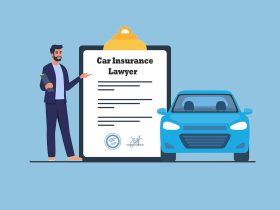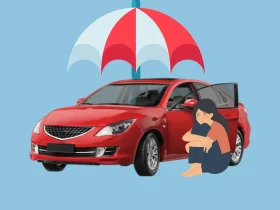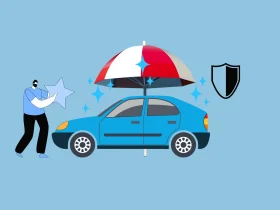Shop Around for Car Insurance
Prices vary between companies, so it’s beneficial to shop around.
Get at least three quotes from different types of insurance companies: those that sell through their own agents, those that use independent agents, and those that sell directly to consumers via phone, apps, or the Internet. Ask friends and family for recommendations based on their experiences, and do your research on the companies before making a decision.
Understand auto insurance well enough to ask informed questions to potential insurers. The representatives you talk to should be willing to comprehensively answer all your questions. Remember, these are the people you’ll depend on if you need to file a claim.
Remember, the least expensive option isn’t always the most valuable. Make sure the company you select has a good reputation and that you are satisfied with the service they offer. Your state insurance department or online consumer information sites can offer information on consumer complaints by company, helping you choose the right insurance provider for your needs.
Compare Insurance Costs Before Buying a Car
Auto insurance premiums depend partly on the car’s price, repair costs, safety record, and theft risk. Many insurance companies offer discounts for features that reduce the risk of theft or injuries, as well as for cars recognized for their safety. When comparing new or used vehicles, research the insurance costs for each. Check safety rankings for specific models using the Insurance Institute for Highway Safety’s (IIHS) online Top Safety Pick rating tool.
Raise Your Deductible
Opting for a higher deductible on your car insurance can significantly reduce your premium costs. However, ensure you have enough savings to cover the higher deductible if you need to make a claim.
Reduce optional insurance on your older car
As a general rule, if your older car is worth less than 10 times the insurance premium, having collision and/or comprehensive coverage might not be cost-effective. To determine if this applies to you, check your car’s value. You can find this information for free on websites like Kelley Blue Book, the National Association of Auto Dealers (NADA), and TrueCar.
Combine your insurance policies or stay with the same company
Many insurers offer discounts if you purchase multiple types of insurance from them, like homeowners and auto, or if you insure more than one vehicle. Some companies offer discounts for long-term customers. However, there are no guarantees, so it’s crucial to do your research. Compare the costs of a multi-policy discount from one insurer with purchasing your insurance separately from different providers.
Maintain a good credit history
Establishing a strong credit history has numerous benefits, including lower insurance costs. Many insurers use credit information to determine auto insurance rates, as research indicates that people who manage their credit well tend to file fewer claims. To ensure you’re benefiting from your good credit, regularly check your credit record to verify that all information is accurate.
Take advantage of low mileage discounts
Some companies provide discounts to drivers who log fewer miles than the average year. Low mileage discounts may also be available to those who carpool to work.
Ask about group insurance
Some companies offer discounts to drivers who obtain insurance through a group plan from their employers, professional associations, business groups, alumni organizations, or other associations. Check with any organizations you’re affiliated with to see if they offer similar benefits.
Seek out other discounts
Your insurer may offer various discounts to policyholders. For example, some companies provide discounts to those with no accidents or moving violations within a certain period or to those who have completed a defensive driving course. If you have a young driver on your policy who is a good student, has taken a driver’s education course, or is away at college without a car, you might also qualify for a lower rate.
Ask your insurer about available discounts that you might qualify for, but remember that the overall cost of your policy is what matters most. A company with fewer discounts might still offer a lower total premium.
FAQs
What is car insurance?
Car insurance is a contractual agreement between you and an insurance provider that offers financial protection against physical damage or bodily injury resulting from traffic accidents, as well as liability that could arise from vehicle-related incidents.
Why is car insurance necessary?
Car insurance is mandated by law in most areas to help cover expenses related to accidents, theft, or other incidents involving your vehicle. It safeguards you financially by covering repair costs, medical bills, and legal fees.
What are the different types of car insurance coverage?
Common types of car insurance coverage include:
- Liability Insurance
- Collision Coverage
- Comprehensive Coverage
- Personal Injury Protection (PIP)
- Uninsured/Underinsured Motorist Coverage
How are car insurance premiums determined?
Insurance premiums depend on various factors, including your age, driving history, location, type of vehicle, credit score, and the coverage limits you select.
Coverage Details
What does liability insurance cover?
Liability insurance protects you from financial losses if you cause an accident that results in damage or injury to others. It encompasses two main components: bodily injury liability, which covers injuries to people, and property damage liability, which covers property damage.
What is included in collision coverage?
Collision coverage pays for your car’s repair costs if it’s damaged in an accident with another vehicle or object, regardless of who is at fault.
What does comprehensive coverage protect against?
Comprehensive coverage protects against non-collision-related damage, such as theft, vandalism, fire, natural disasters, and animal bites.
Is uninsured/underinsured motorist coverage necessary?
This coverage is important as it protects you if you are in an accident with a driver who either doesn’t have insurance or doesn’t have enough insurance to cover the damages.
What is Personal Injury Protection (PIP)?
Personal Injury Protection (PIP) covers medical expenses for you and your passengers, regardless of who is at fault in an accident. It can also include compensation for lost wages and other related costs.
Policy Management
How do I file a car insurance claim?
To file a claim, get in touch with your insurance company as soon as possible after the incident. Provide details about the accident, the other party’s information, and any relevant documents such as police reports and photos.
Can I change my coverage limits or deductible?
Yes, you can usually adjust your coverage limits and deductibles anytime by contacting your insurance provider. Remember that changes may affect your premium.
What Happens if I Let My Car Insurance Expire?
If you let your car insurance lapse, several negative consequences can occur:
How do I get a car insurance quote?
You can obtain a car insurance quote by contacting insurance companies directly, using online comparison tools, or consulting an insurance agent. Give precise information about your vehicle and driving history to get an accurate quote.
What should I do if I am unsatisfied with my current insurance provider?
If you are not satisfied with your current insurance provider, you can shop around for a new policy. Before making a switch, make sure to compare coverage options, customer service, and premiums from multiple providers.
Discounts and Savings
Are there any discounts available for car insurance?
Many insurers offer discounts for various reasons, such as having a good driving record, bundling policies, installing safety features, being a good student, or completing a defensive driving course.
How can I lower my car insurance premium?
To lower your premium, you can raise your deductible, take advantage of discounts, maintain a good driving record, drive a car with safety features, and shop for better rates.
Can I get car insurance with bad credit?
Yes, getting car insurance with bad credit is possible, but you may pay higher premiums. Shopping around and comparing quotes from different insurers can help you find the best rate.
Special Situations
Do I need special insurance if I use my car for business purposes?
If you use your car for business purposes, you might need commercial auto insurance, as personal auto insurance policies typically do not cover business use.
Is it possible to insure a car that isn’t in my name?
Generally, you need to have an insurable interest in the vehicle to insure it. This means you must have some form of ownership or financial interest in the car.
Does car insurance cover rental cars?
Many car insurance policies provide coverage for rental cars, but it’s essential to review the specific details of your policy. You can also purchase additional rental car insurance from the rental company.








Leave a Reply